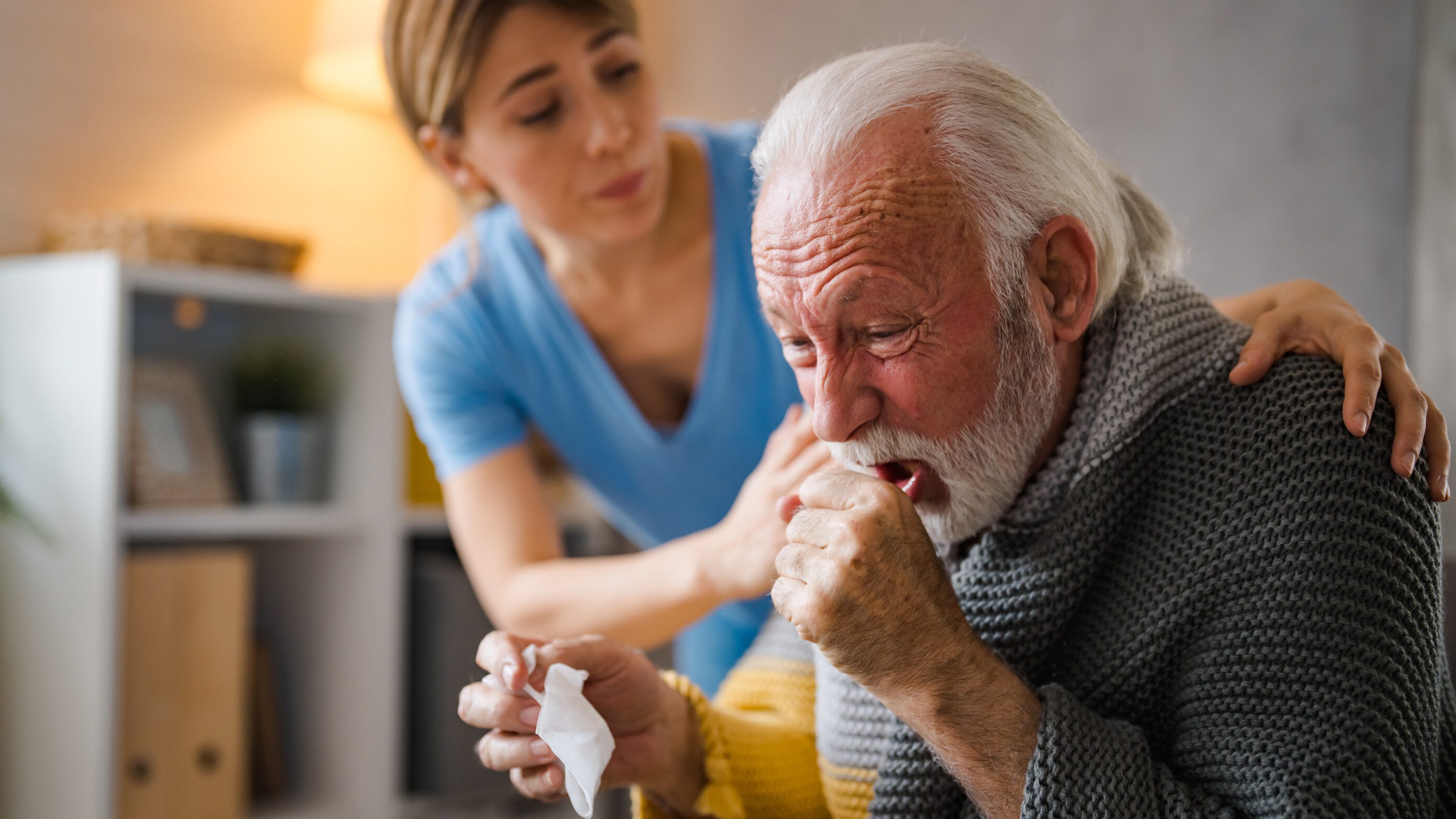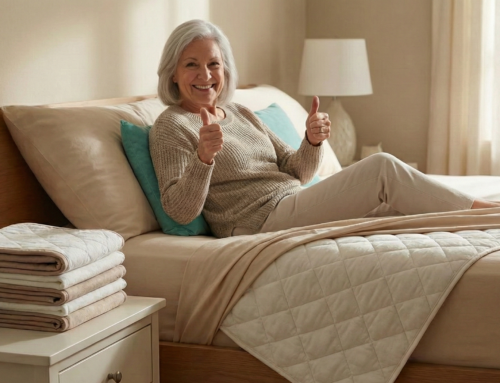Pneumonia is a serious lung infection that can have a major impact on seniors. As caregivers, you should be aware that older people have weaker immune systems and may have pre-existing medical conditions that make them more vulnerable to pneumonia. This infection causes the air sacs in the lungs to fill with fluid or pus, leading to breathing difficulties and other serious symptoms.
Recognition of the symptoms of pneumonia
Early detection of pneumonia can help lead to faster treatment and better outcomes for the senior. Watch out for these common symptoms:
- Cough: Persistent cough, often with mucus.
- Fever: High temperature, sometimes with chills.
- Shortness of breath: difficulty breathing or rapid breathing.
- Chest pain: Sharp or stabbing pain in the chest, worsening with deep breathing.
- Fatigue: extreme tiredness and weakness.
- Confusion: changes in mental state that are common in older adults.
Causes and risk factors
Certain factors may increase the risk of pneumonia in seniors. These include chronic diseases such as COPD, diabetes, heart disease and a weakened immune system. Seniors living in nursing homes or hospitals are at higher risk due to close contact with other people and potential exposure to infections.
Diagnosing pneumonia
As a caregiver, understanding how doctors diagnose pneumonia can help you. Diagnostic methods include:
- Physical exam: doctors listen to the lungs with a stethoscope and look for abnormal sounds.
- X-ray of the lungs: helps determine the extent and location of the infection.
- Blood tests: these check for signs of infection in the bloodstream.
- Mucus test: An analysis of mucus from the lungs to determine the cause of infection.
Treatment options
Early and effective treatment is crucial for seniors with pneumonia. The treatment plan may include:
- Antibiotics: They are prescribed for bacterial pneumonia.
- Antiviral drugs: they are used for viral pneumonia.
- Hospitalization: severe cases may require hospital care, including oxygen therapy and intravenous fluid administration.
- Rest and hydration: encourage plenty of rest and fluids to stay hydrated.
Prevention of pneumonia
To maintain the health of the elderly, it is essential to prevent the onset of pneumonia. Here are some practical tips for prevention:
- Vaccinations: make sure they are vaccinated against pneumonia and influenza.
- Hand hygiene: make sure you wash your hands regularly to prevent infections.
- Healthy lifestyle: Encourage a balanced diet, regular exercise and enough sleep to boost their immune system.
- Avoid smoking: smoking damages the lungs and increases the risk of infection.
Pneumonia is a serious problem for seniors, but with the right knowledge and care, you can help manage and effectively prevent it. At Atena, we understand the unique needs of seniors and the challenges caregivers face. Our team strives to provide the highest quality care and support to keep your loved ones healthy and safe. We offer individual care plans and professional help tailored to their needs.
For more information about our services and how we can help you, please visit our website or contact us today. Let Atena be your trusted partner in senior care and senior well-being.
Would you like to know what other diagnoses are prevalent among seniors? Find out here.







